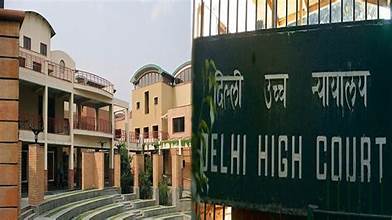


The Delhi High Court recently issued an important ruling supporting Rule 4, Chapter VII of its Original Side Rules, 2018, requiring a strict 120-day deadline for submitting written statements, even in cases that are not commercial. This decision will have broad impacts for litigants and attorneys practicing in the Delhi High Court's primary jurisdiction, especially regarding how these unique rules interact with the Code of Civil Procedure, 1908 (CPC).
Background of the Case
The situation concerned two appeals disputing the constitutionality of Rule 4, Chapter VII of the Delhi High Court (Original Side) Rules, 2018. The petitioners contended that this Rule resulted in inequitable discrimination and differing treatment of different litigants in Delhi based solely on pecuniary jurisdiction.
Specifically, they contended that non-commercial matters in district courts are governed by Order VIII Rule 1 of the CPC, which allows courts discretion to condone delays in filing written statements beyond 120 days. In contrast, the Original Side Rules of the Delhi High Court impose a strict 120-day deadline without room for extension.
The petitions were dismissed by the Division Bench of Acting Chief Justice Manmohan and Justice Mini Pushkarna, who stated that the Delhi High Court's Original Side Rules, being a special law, have priority over the CPC. The Court emphasized that the difference in procedures between the High Court and civil courts is firmly established and based on the CPC.
“The plea raised by the petitioners regarding Rule 4, Chapter VII of the DHC Original Side Rules, being discriminatory in nature, is totally misplaced. The very distinction, between procedures of the High Court and Civil Court, is found ingrained in Section 129 of the CPC. The said Section recognizes special Rules for the High Court, and thereby, itself makes a distinction between High Court and Civil Court. When the CPC itself envisages distinction in the practice and procedure between High Court and Civil Court, the Rules framed thereunder, cannot be challenged on the anvil of discrimination,” the Court observed.
The Court further noted that the petitioners had not challenged Section 129 of the CPC, which explicitly permits High Courts to frame rules that can override the provisions of the CPC. Nor had they challenged Section 7 of the Delhi High Court Act, which grants the High Court the power to make rules regarding practice and procedure in its original jurisdiction.
“Thus, when plenary powers of this Court to frame the Original Side Rules, are recognized and accepted, the petitioners have not been able to establish any case that the exercise of such powers by this Court, and the Rules framed thereunder, are unconstitutional in any manner. For the foregoing reasons, the present petitions are held to be devoid of any merits. Accordingly, the same are dismissed, along with the pending applications,” the Bench concluded.
This decision affirms the power of the Delhi High Court to establish its own procedures for cases within its initial jurisdiction. The importance of following strict timelines in legal proceedings is highlighted by the decision, especially in a court as bustling and crucial as the Delhi High Court.
The judgment also highlights the distinct procedural framework that governs the High Court as compared to the district courts. It serves as a reminder to litigants and practitioners that the High Court's Original Side Rules must be carefully observed, as they carry the weight of special law and will prevail over the more general provisions of the CPC.
This decision may require practitioners to be more careful in managing cases, especially when it comes to submitting written statements on time. The ruling also confirms the High Court's dedication to simplifying processes and guaranteeing that cases move forward within set time limits, leading to a decrease in the occurrences of delays in the justice system.
Conclusion
The Delhi High Court's choice to support its Original Side Rules demonstrates a dedication to preserving a unique and effective procedural system for cases falling within its original jurisdiction. The Court has emphasized the significance of following procedural rules meant to speed up the litigation process by upholding the 120-day deadline for submitting written statements. This decision not only explains how the High Court's specific rules interact with the CPC, but also establishes an important example for upcoming cases with procedural issues.
TAGS: Delhi High Court Original Side Rules 120-day deadline written statements Code of Civil Procedure (CPC) Rule 4 Chapter VII Acting Chief Justice Manmohan Justice Mini Pushkarna special law discrimination Section 129 CPC Delhi High Court Act procedural rules litigation process.